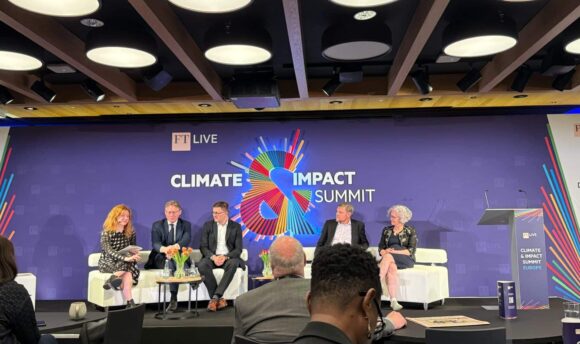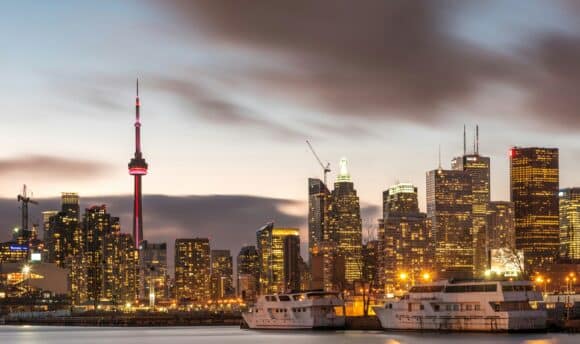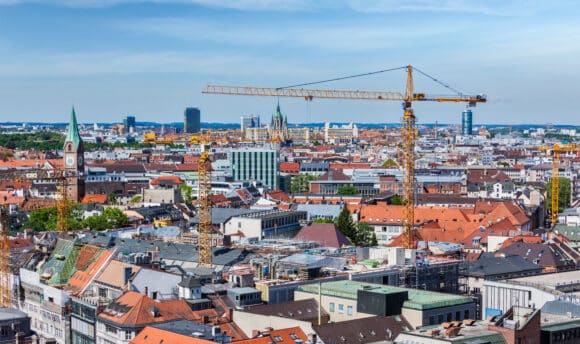The dangerous impacts of climate change – the flooding, droughts, extreme heat, tropical cyclones, severe storms, erosion, water contamination and groundwater depletion – are well known and witnessed daily in Bangladesh, my home, but one thing that’s less obvious is the role of the insurance industry in the crisis. Burning fossil fuels is the number one cause of the climate crisis and insurers have huge power as both investors and underwriters of fossil fuel projects across the globe. If the insurance industry were to act now to stop underwriting dirty fossil fuel projects and instead support the scaling up of clean and green energy, it could help ensure a just transition and a bright future for all of us. But if industry leaders continue to insure fossil fuel expansion, then they put our future at risk. Here in Bangladesh we know what that means – we are at the frontline of the climate catastrophe.
I work directly with communities that are severely impacted, including farmers, fisherfolk, and villagers who are facing harmful air and water pollution, extreme heat, violent flooding, and drinking water shortages. They are losing their livelihoods, their safety, their future, they are being written off as collateral damage in the quest for ever-greater profits. But business as usual cannot continue and without urgent action by governments and multinational companies profiting from fossil fuels, this is the future we are giving to all of our children.
View this post on Instagram
Bangladesh is a low-lying river delta, with more than a thousand rivers that are connected by a number of canals and wetlands. Almost all the rivers are dependent on three major river systems. However, despite our many rivers, we are a water-scarce country facing a two-fold water crisis. Where once our river network provided an abundance of biodiversity and natural beauty, most are now heavily polluted from industrialisation, rapid urbanisation, and the legacy of colonialism that has seen foreign corporations continue to use Bangladesh as a base for cheap labour and highly-polluting industries, such as the garment industry (accounting for 85% of the country’s exports). Dhaka, where I live, is the most densely populated city in the world and home to 24 million people. It is situated on the Buriganga river, one of the most polluted rivers in the country and a major river port. 70% of the freshwater needs of the people of Dhaka comes from groundwater, and yet this source is depleting at an incredibly alarming rate of 2 metres per year. By 2050, it’s predicted that the freshwater supply for Dhaka will have depleted to 120 metres underground.
We are a climate-vulnerable nation and, at the same time as battling drinking water shortages, we are also facing the existential threat of flooding and an increase in violent weather. Bangladesh is mostly a flat country, with little protection against rising water levels, and a sea rise of 1 metre is predicted to put one fifth of Bangladesh permanently underwater and cause approximately 15 million people to lose their homes. Year on year, as the climate crisis deepens, we are hit by an increase in extreme tropical cyclones and ferocious monsoon rainfalls that overflow the river banks and cause devastating floods, washing away whole towns and villages, destroying lives and wiping out crops. Our rivers are vulnerable and, in turn, so are we.
When faced with the climate emergency, our government, along with many others across the world, has come up with false solutions, such as moving from coal to gas instead of investing in renewable, clean energy.
"In Bangladesh, we benefit from sunlight throughout the year, we have wind potential on our coastlines, our government, with the support of other governments, financial backers and insurance companies, should be investing in safe, green infrastructure, but instead they are focusing on imported fossil fuels, like Liquid Natural Gas (LNG)."
Bangladesh first started importing LNG to meet domestic demand in 2018, and our LNG reliance is growing – currently Bangladesh has long-term LNG deals to import approximately 8 million tonnes per year from 2026 onwards, nearly three times our existing import volume. Far from a clean and sustainable fuel, research shows that LNG is accelerating the crisis and may have an even bigger impact on climate chaos than coal, the dirtiest fossil fuel. Investing in LNG infrastructure traps us into imported fossil fuel dependency and guarantees an increase in extreme weather, flooding and devastation.
I have been an environmental activist for more than two decades, and a member of Waterkeeper Alliance since 2009, and over that time I have seen many changes and yet governments and industries continue to put profit above people and planet. As the coordinator of Waterkeepers Bangladesh, we cannot match the wealth and power of governments and multinational companies, so we need to be strategic and use our energy wisely in order to push for bold and lasting change, and this is what brought me to the Insure Our Future campaign. Fossil fuel projects cannot operate without insurance, and fossil fuel insurance is a very concentrated market. This means that united, global campaigning efforts can make a big impact. I believe that working in solidarity and in hope is how we will bring change. Together, we can protect the future. Please join us.
This feature is part of Insure Our Future’s Spotlight series. Each month, we highlight a different campaign group demanding a better insurance industry. Check out our Instagram to see the full three part feature on Waterkeepers Bangladesh.



